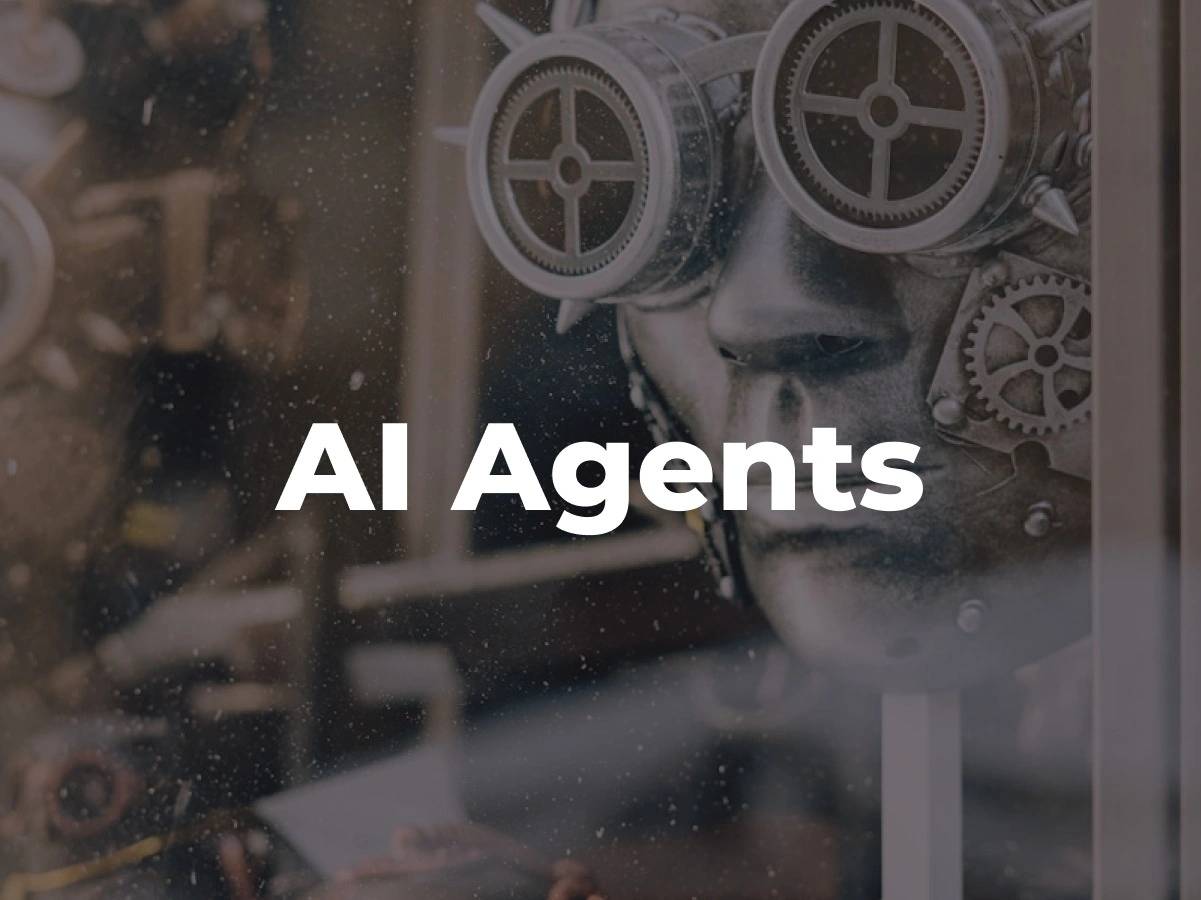Subscribe to wiki
Share wiki
Bookmark
AI Agents
The Agent Tokenization Platform (ATP):Build autonomous agents with the Agent Development Kit (ADK)
0%
AI Agents
AI Agents in the blockchain and cryptocurrency space are autonomous software entities designed to interact with decentralized environments. These agents operate by executing tasks such as transaction analysis, automated trading, smart contract management, and DeFi (Decentralized Finance) operations. [1] [2]
Overview
These autonomous onchain agents leverage AI to interact with blockchain protocols, enabling a range of functionalities such as trading, token swaps, portfolio management, and DeFi engagement. By automating complex processes, AI agents can help users optimize their strategies, reduce manual errors, and execute transactions effectively and efficiently. [1]
AI Agents Types
Smart Contract Agents
- Smart contract agents automate transactions and processes based on predefined conditions in smart contracts. They are widely used in DeFi platforms to facilitate lending, borrowing, yield farming, and token swaps. These agents remove the need for intermediaries, providing faster and trustless transactions.
Trading Bots
- These are specialized AI agents used for automated trading on cryptocurrency exchanges. Trading bots execute trades based on market conditions, analyze trends, and adjust strategies in real time to optimize profits. They can operate on both centralized and decentralized exchanges (DEXs), often utilizing arbitrage opportunities and machine learning models.
Data Analysis Agents
- Data analysis agents gather and process information from blockchain data sources, monitoring on-chain activity, network health, and user behavior. They help in identifying patterns, detecting fraudulent activities, and providing insights for better decision-making. Blockchain analytics platforms use these agents to track transactions and ensure transparency.
Governance Agents
- In decentralized autonomous organizations (DAOs), governance agents play a crucial role by facilitating decision-making processes. They collect community votes, execute proposals, and manage changes to protocols based on governance models. This ensures that the blockchain evolves according to the consensus of its participants.
Security and Audit Agents
- These agents focus on scanning smart contracts, transactions, and network activities to identify vulnerabilities or suspicious actions. They are essential for maintaining the security of blockchain ecosystems, conducting audits, and ensuring compliance with protocol standards. [1] [2]
Key Components of AI Agents
AI Agents within the blockchain space typically involve several core elements:
- Data Collection: Gathering on-chain and off-chain data, including transaction history, smart contract interactions, market data, and network metrics.
- Processing and Analysis: Using machine learning models to interpret blockchain data, detect patterns, and predict market trends or identify risks.
- Decision-Making: Making autonomous decisions such as executing trades, adjusting strategies, or implementing protocol changes based on predefined algorithms and real-time data.
- Interfacing with Blockchain: Communicating directly with blockchain networks through APIs, smart contracts, or decentralized applications (dApps). [3]
Applications of AI Agents in the Crypto Market
- DeFi Platforms: AI agents automate DeFi operations, enabling protocols to manage liquidity pools, staking, yield farming, and lending. These agents optimize returns for users while reducing the complexity of interacting with decentralized platforms.2. Crypto Trading: AI trading bots are widely used in the crypto market for high-frequency trading, risk management, and portfolio balancing. They execute trades based on sophisticated market analysis, reducing human error and responding faster than manual trading.
- Blockchain Analytics: Data analysis agents track transactions and address movements, providing insights into market behavior, whale activity, and project growth. Platforms like Chainalysis and Nansen use AI agents for blockchain forensics and data intelligence.4. Decentralized Autonomous Organizations (DAOs): In DAOs, AI governance agents automate proposal evaluations, voting systems, and decision-making, making governance more efficient and transparent.5. NFT Marketplaces: AI agents facilitate NFT evaluation, trade recommendations, and market predictions. They can also automate royalty distributions and monitor the authenticity of digital assets, ensuring a smoother NFT trading experience. [3]
AI Agents Projects in Crypto
Truth Terminal
Truth Terminal is an AI chatbot founded by Andy Ayrey, which became the first AI bot to achieve crypto millionaire status. Its success is linked to its involvement with the memecoin GOAT on the Solana blockchain. This AI Agent can autonomously post content on X and interact with comments. It can read comments, remember past interactions, and maintain control over the content it publishes. [3] [5]
Luna
Luna AI Agent was developed by Virtual Protocol and it has over 16,000 followers on X as of November 2024. Luna can engage and converse with viewers and is integrated across various entertainment platforms, reaching a diverse audience, especially among anime enthusiasts. [4]
Users holding LUNA tokens can share revenue and governance through a DAO. A portion of the revenue can also be used to repurchase and burn LUNA, thereby creating sustainable value for holders. With memory synchronized across multiple platforms, Luna creates a sense of familiarity with frequent interactors, fostering a connection between the AI Agent and users. [5]
Challenges and Ethical Considerations
While AI agents have significantly advanced blockchain technology, several challenges remain:
- Transparency: While AI agents bring automation, ensuring transparency in their decision-making processes is crucial, especially in DeFi platforms.
- Security: Agents managing smart contracts need to be secure to prevent exploitation or hacks, as malicious agents could cause significant financial loss.
- Fairness and Bias: AI agents may exhibit biases based on training data or market behavior, leading to unfair advantages for some participants.
- Decentralization Risks: AI agents should not compromise the core decentralized ethos of blockchain systems, and their deployment needs careful oversight.
- Ethical Use: Ensuring that AI agents are ethically programmed and operated is vital, particularly when they handle sensitive financial information and execute transactions autonomously. [2] [3]
See something wrong?
The Agent Tokenization Platform (ATP):Build autonomous agents with the Agent Development Kit (ADK)
